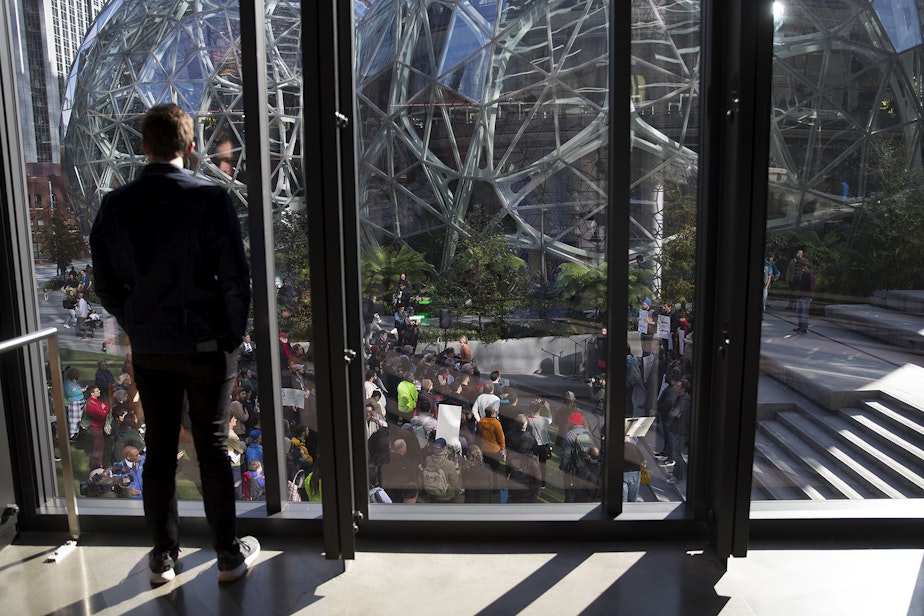Tech finally gets a path toward an entrepreneur program. Could Seattle benefit?

It’s not a startup visa. But it’s the closest thing to it yet.
Seattle could soon see more startups due to an immigration program that was revived this week.
It would allow entrepreneurs to come to the U.S. to launch their companies. Or, if they're already in the U.S., to transfer from tech giants like Amazon and Microsoft to launch their own startups.
The program was started during President Barack Obama’s term. It was stalled under the Trump administration, but the Biden administration has given it the green light.
In a press release, U.S. Citizenship and Immigration Services, the agency tasked with the program, said it would allow up to three entrepreneurs per startup entity, as well as their spouses and children. The entrepreneurs and their families would then have five years to live and work in the U.S.
Xiao Wang is a co-founder of Boundless, a software company which helps people with their immigration paperwork.
Sponsored
Wang said the International Entrepreneur Rule is badly needed for the U.S. to compete in the global economy.
“Over the last couple of years, all of these other countries, Canada, Mexico, China, have invested a lot of money into attracting entrepreneurs," he said.
"The U.S. has been — I would call it — almost actively trying to keep people out. That kind of attitude will hurt us meaningfully."
While the program itself would impact around 3,000 people, the impact on employment and the economy would be much greater. One bipartisan think tank estimated the program could bring in between 100,000 to 300,000 jobs over a decade.
And though it’s not the startup visa that some have wished for, it’s the closest thing to it yet.
Sponsored
Tahmina Watson, a Seattle-based immigration lawyer, sees it as a way to invest in innovation and stimulate the economy, especially after a difficult year battling the pandemic.
"A lot of the H-1B workers that were coming to me in 2009 were laid off from the very big companies here," Watson said, reflecting on the recession at the time.
"But many of them had amazing ideas. And they just had no pathway."
Watson said that she'll be watching the next six months to see the level of applicants and the economic ripples.




